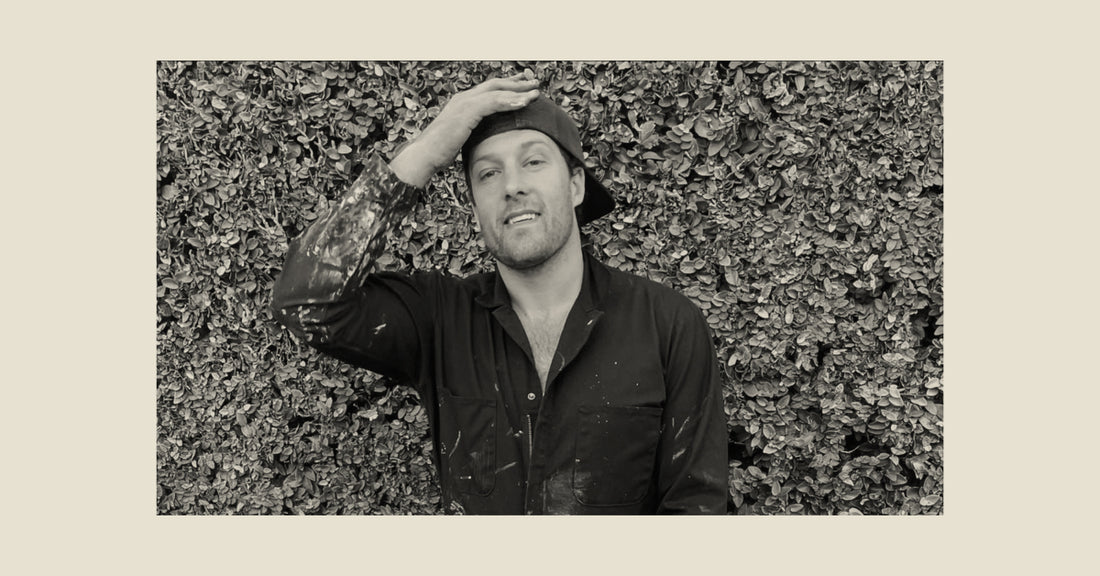In this week’s Trends w/ Benefits Podcast, Shane Heath—founder and CEO of MUD\WTR—shares with me the power of the first title selected for MUD\WTR’s new book club, “Atomic Habits: An Easy and Proven Way to Build Good Habits and Break Bad Ones” by James Clear. He also talks about how to overcome the voice of doubt and how to make the most of the 4,000 weeks of life each of us has, on average, on this planet.
The morning we we met to record the podcast, I walked through the sunlight slanting through the high windows of MUD\WTR Headquarters. The place seemed empty except for some thumps coming from around the corner. I called out and was met by Chris Keener, head of MUD\Films, who was zhuzhing our podcast equipment.
“Does Shane know we’re starting?” Keener asked. “I think he’s in his hyperbaric chamber. Sometimes he falls asleep in there. I’ll go get him.”
The Power of a Morning Practice
Sleep is something Heath, who’s both the founder of a burgeoning company as well as a new father, needs more of. As we started the interview he discussed the importance of healthy habits and how regardless, or because, of the chaos around him, he tries to start his days with intention.
“How you wake up has a domino effect,” he says. “It's going to determine the rest of the day.”
He told me he has found the start of the day can determine, “your spectrum of stress, or your spectrum of perception.” He says it has an impact on whether you see things as good or bad, abundant or lacking, easy or difficult.
Heath begins many of his days doing something beneficial for his body, like a cold plunge or jujitsu.
“Most mornings I wake up and think, ‘I don't really want to do this, I'm kind of cold, I'm pretty tired and I don't really want to go.’”
However, he says, committing to completing a morning practice can give you a sense of control.
“Afterwards you're going to be faced with a lot of things out of your control,” he says.
Heath has noticed that on days when he doesn't do an intentional morning practice, something like a harsh email tends to trigger the higher end of the stress spectrum for him, whereas if he does do the practice, “... all of a sudden that email kind of sits there in the middle, and it's not that big of a deal.”
Embracing Our 4,000 Weeks of Life
Heath and I geeked out for a while on game-changer James Clear’s “Atomic Habits.” Taking a page (ahem) from the book, Heath told me rather than focusing on a particular goal, he likes to ask himself questions that point him towards what kind of person he wants to be. He asks himself:
“What does that person do on a daily basis? What does that person do to get there? What are the things that are holding me back from getting there? How can I face that? How can I weave that in? What are the things that I need to do to continue to be that person, to bring that person even more out, more fully, more expressively?”
And Heath’s never reading just one book at a time. He introduced me to “Four Thousand Weeks: Time Management for Mortals” by Oliver Burkeman. The book is based on the fact that, on average, we each have about 4,000 weeks of life to live. For Heath, thinking of life this way gives him a tactile and applicable way of judging when it's the right time to push himself to take on uncomfortable but important challenges—like public speaking. While Heath is willing to push his body with cold plunges, jujitsu class or the random triathlon, he told me, “Delivering a TED talk or something like that would make me extremely uncomfortable as well, but in a completely different way.”
Quieting the Voice of Doubt to Build the Future
Even the most intentional minds sometimes feel “the wind prying with its stiff fingers at the very foundations,” to paraphrase Mary Oliver in her poem “The Journey.”
When Heath hears the voice of doubt, he has a ritual to stay focused on the path ahead. He writes down what he wants for himself, even when he doesn’t believe it’s possible.
“I'll read that piece of paper,” he says. “I'll read certain lines that really don't quite land yet with me. I'm like, ‘I want this, but I can't feel it.’ I'll read looking at myself in the mirror. The first time you read it, you're really hating. I'm like, ‘Really? You're definitely not going to get that.’”
He says at first, he feels like the worst sides of himself are coming after him.
“But you sit there and you invite whatever that is to the table and you're like, ‘You have you have a place here, I want to hear you.’ And then you just keep repeating it. You're like, ‘I'm gonna do this.’ And you just keep going.”
He says he keeps repeating the words he wrote until he can feel the frequency of the words in his body.
“It's no longer just words on a page or words coming out of my mouth,” he says. “I feel it in my body. You can straight-up transition to a new state of being.”
Part of Heath’s ability to envision the future is inspired by his father.
“My dad is a builder,” he says. “He built three of the homes that I grew up in. I remember the blueprints. Then it was the sawdust, then the building.” He says his family would always move in a little bit early, before the project was complete. There would still be plywood floors, or missing doors.
“From a very early age I was seeing the relationship between an idea that can come down into a drawing, and then that drawing can turn into a physical manifestation that I'm literally sleeping in, that was my shelter,” he says. “[My dad was] literally building safety from an idea.That was a really transformative experience for me. My dad had this understanding of the whole timeline of the creation process where he could design the plans, hammer the nails and work on the plumbing and finishing, and see it all the way through.”
Heath says as he entered his career many designers around him specialized in narrow and certain ideas, but he never did.
“I had a passion, unconsciously, for more of a broad picture. And it definitely led me to start this company.”
He emphasized that, yes, he’s selling a product, but just as important to him is "the mental shift that we create, and that’s not something that we can really quantify in the data. But that's where it's at. That's success to me.”
Sara Russell is a relationship coach and the host of the Trends w/ Benefits Podcast.
Read More: Shane Heath's Morning Ritual
Read More: Shane Heath of MUD\WTR: “Why you should consider doing a weekly technology and food fast”
Read More: How This Founder Made His Startup a No-Burnout Zone

